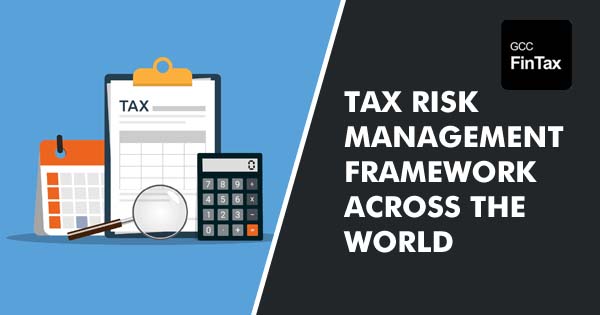
Tax risk refers to loss of income in the form of elevated tax costs, interest, and fines; unsatisfactory commercial outcomes due to missed opportunities to structure arrangements in an efficient manner. Tax risk is divided into two categories: judgmental and operational.
Judgemental risk refers to the understanding and interpretation of tax law, and it manifests as tax planning and advisory risk; operational risk refers to the processes, people, and systems in place to manage tax risk, and it manifests as tax compliance risk.The role of tax function is to assist senior management in understanding and establishing their tolerance for risk, taking into account both the judgmental and operational aspects of tax risk, either directly in relation to tax activities that the tax department is fully accountable for or indirectly through collaboration with others.
The Organization for Economic Co-operation and Development (OECD), the G20, the European Union, and the United Nations all have agendas and action plans that reflect the need for more transparency.The OECD's Country-by-Country Reporting (CbCR) guideline and template is the most immediate and broad endeavour facing tax functions. CbCR will have a major influence on the tax function and how it interacts with the rest of the organisation in order to be ready for initial compliance as well as recurrent yearly requirements. Other forthcoming measures under the OECD's Base Erosion and Profit Shifting (BEPS) Action Plan, as well as unilateral government acts that potentially upend established international tax conventions, will influence changes to the tax function.
The number of transparency efforts is growing, with intricacies and additional reporting requirements for individual industries and nations. The problem has piqued the interest of a diverse set of stakeholders, and it comes at a time when tax operations are inadequate.The continuously changing global tax scene necessitates a thorough evaluation of the tax function today. Many organisations may need to alter in order to close capacity gaps and effectively manage risk.Companies are concerned about how country-by-country disclosures of transfer pricing strategy, corporate taxes paid, operational structure, and financial information may be perceived and potentially exploited. Furthermore, businesses are afraid that such information may wind up in the public domain, posing a competitive and reputational risk.
Greater clarity in worldwide reporting is causing worry among the C-suite. These include the possibility for rivals to get access to supply chain and business operating information, as well as the reputational consequence of making tax information public to a larger community. While the present transparency drive is focused on private disclosures such as CbCR, there is an increasing tendency toward more public disclosure of the same data.
Before generating paperwork, some organisations wait until audits and litigation have begun. This method usually necessitates a large investment of both money and effort. In certain circumstances, local nation income tax filings are done on the fly, based on 'best available' data that may or may not be completely reconciled with source data or other reports. Instead, businesses should consider how audits and disputes may affect the tax function as a whole. Companies may prevent shocks and better manage resources by taking proactive actions today.
Disclaimer: Content posted is for informational & knowledge sharing purposes only, and is not intended to be a substitute for professional advice related to tax, finance or accounting. The view/interpretation of the publisher is based on the available Law, guidelines and information. Each reader should take due professional care before you act after reading the contents of that article/post. No warranty whatsoever is made that any of the articles are accurate and is not intended to provide, and should not be relied on for tax or accounting advice.
You can access Law including Guidelines, Cabinet & FTA Decisions, Public Clarifications, Forms, Business Bulletins for all taxes (Vat, Excise, Customs, Corporate Tax, Transfer Pricing) for all GCC Countries in the Law Section of GCC FinTax